
|
Scooped by
Alfredo Corell
onto Immunology Diagnosis November 24, 2014 12:41 PM
|
Get Started for FREE
Sign up with Facebook Sign up with X
I don't have a Facebook or a X account


 Your new post is loading... Your new post is loading...
 Your new post is loading... Your new post is loading...
|

|
Scooped by
Alfredo Corell
October 17, 2016 5:36 PM
|
OBJETIVOS:
• Repasar las pruebas diagnósticas Inmunológicas para el Diagnóstico y Seguimiento de Enfermedades Autoinmunes no-órgano-específicas.
• Conocer las presentaciones clínicas de las patologías de Autoinmunes sistémicas más frecuentes.
• Entender la correlación de las manifestaciones clínicas con las pruebas analíticas en estas enfermedades.
• Ser capaces de emitir un informe diagnóstico de calidad, preciso y entendible para los clínicos.
• Ser capaces de proponer el abordaje terapéutico de las patologías diagnosticadas.
La finalidad es el reciclaje y actualización de profesionales de la inmunología clínica en el campo de Autoinmunidad.
PROFESORADO:
• Alfredo Corell Almuzara (Inmunólogo, Profesor Titular de Inmunología Univ. Valladolid).
• Luis Fernández (Inmunólogo, HU San Pedro de Alcántara).

|
Scooped by
Alfredo Corell
October 17, 2016 5:25 PM
|
OBJETIVOS:
Reciclaje y actualización de profesionales de la inmunología clínica en el campo de la calidad en el laboratorio:
• Introducción a la calidad en el laboratorio.
• Manejar y comprender los conceptos básicos de calidad y legislación aplicables a un laboratorio clínico.
• Adquirir destreza en la elaboración de procedimientos, mapas, incidencias, análisis y planes de mejora.
• Conocer los conceptos y cálculos estadísticos básicos para el trabajo en calidad (incertidumbres, medias robustas, desviaciones, errores).
En este curso de introducción, presentaremos los conceptos básicos para entendernos con normas, leyes y auditorías. Además, manejaremos las herramientas imprescindibles para optimizar nuestro día a día mediante la mejora continua de nuestros procesos y procedimientos en el laboratorio y trataremos de descubrir todo lo que un sistema de calidad puede hacer para facilitarnos el trabajo.

|
Scooped by
Alfredo Corell
March 2, 2016 7:38 AM
|
CRECE NUESTRO PROGRAMA DE LEUCEMIAS Y LINFOMAS... se incorpora como Asesora de referencia la Dra. Neus Villamor, del Hospital Clinic de Barcelona
CRECE NUESTRO ESQUEMA DE LEUCEMIAS Y LINFOMAS:
En 2016, se incorpora como referee externo en nuestro Esquema de Leucemias y Linfomas, la Dra. Neus Villamor, hematóloga y citometrista en el Hospital Clinic de Barcelona. Con más de 150 publicaciones relacionadas, proyectos de investigación y miembro del equipo de "Fisiopatologia i bases moleculars en hematologia" en el IDIBAPS (http://www.idibaps.org/…/fisiopatologia-i-bases-moleculars-…), la Dra Villamor es referente nacional e internacional en el diagnóstico de estas patologías.
La Dra. Villamor participa o ha participado en los ejercicios de intercomparación que hacía la SIC hace unos años, en UKNEQAS y en los de GECLID. Entiende las fortalezas y debilidades de cada uno, y nos va ayudar a crecer para ofertar el mejor servicio posible a nuestros participantes.
A partir de este año, los participantes en GECLID, tendrán un informe experto con la orientación formativa para la mejora de la competencia de su laboratorio.
Los interesados pueden consultar su CV en: http://www.ema.europa.eu/…/docume…/contacts/villamorn_CV.pdf

CRECE NUESTRO ESQUEMA DE LEUCEMIAS Y LINFOMAS:
En 2016, se incorpora como referee externo en nuestro Esquema de Leucemias y Linfomas, la Dra. Neus Villamor, hematóloga y citometrista en el Hospital Clinic de Barcelona. Con más de 150 publicaciones relacionadas, proyectos de investigación y miembro del equipo de "Fisiopatologia i bases moleculars en hematologia" en el IDIBAPS (http://www.idibaps.org/…/fisiopatologia-i-bases-moleculars-…), la Dra Villamor es referente nacional e internacional en el diagnóstico de estas patologías.
La Dra. Villamor participa o ha participado en los ejercicios de intercomparación que hacía la SIC hace unos años, en UKNEQAS y en los de GECLID. Entiende las fortalezas y debilidades de cada uno, y nos va ayudar a crecer para ofertar el mejor servicio posible a nuestros participantes.
A partir de este año, los participantes en GECLID, tendrán un informe experto con la orientación formativa para la mejora de la competencia de su laboratorio.
Los interesados pueden consultar su CV en: http://www.ema.europa.eu/…/docume…/contacts/villamorn_CV.pdf

|
Scooped by
Alfredo Corell
November 3, 2015 7:28 PM
|
OBJETIVOS:
Reciclaje y actualización de profesionales de la inmunología clínica en el campo de los trasplantes.
• Repasar las pruebas diagnósticas inmunológicas para el Diagnóstico y Seguimiento de diferentes tipos de Trasplantes (de órganos sólidos y hematopoyéticos).
• Conocer las presentaciones clínicas de las patologías de más frecuentes asociadas a los trasplantes de órganos.
• Entender la correlación de las manifestaciones clínicas con las pruebas analíticas en trasplantes.
• Ser capaces de emitir un informe diagnóstico de calidad, preciso y entendible para los clínicos.
• Ser capaces de proponer posibles Inmunoterapias de algunas situaciones pre- y post-trasplante estudiadas.
Más información: www.geclidsei.uva.es

|
Rescooped by
Alfredo Corell
from Create, Innovate & Evaluate in Higher Education
November 3, 2015 7:19 PM
|
En este curso de introducción, presentaremos los conceptos básicos para entendernos con normas, leyes y auditorías. Además, manejaremos las herramientas imprescindibles para optimizar nuestro día a día mediante la mejora continua de nuestros procesos y procedimientos en el laboratorio y trataremos de descubrir todo lo que un sistema de calidad puede hacer para facilitarnos el trabajo.

|
Scooped by
Alfredo Corell
May 30, 2015 3:20 PM
|
Welcome to ANApatterns.org, the official website for the International Consensus on Antinuclear Antibody (ANA) Pattern (ICAP)
ICAP was initiated as a workshop aiming to thoroughly discuss and to promote consensus regarding the richness in nuances of morphological patterns observed in the indirect immunofluorescence assay on HEp-2 cells. The ICAP initiative was implemented at the 12th International Workshop on Autoantibodies and Autoimmunity (IWAA) by members of theAutoantibody Standardization Committee, a subcommittee of the International Union of Immunological Societies (IUIS) Quality Assessment and Standardization Committee and affiliated with the Centers for Diseases Control and Prevention(CDC).
Citation for this work: E.K.L. Chan, J. Damoiseaux, O.G. Carballo, K. Conrad, W. de Melo Cruvinel, P.L.C. Francescantonio, M.J. Fritzler, I. Garcia-De La Torre, M. Herold, T. Mimori, M. Satoh, C.A. von Mühlen, and L.E.C. Andrade. Report of the First International Consensus on Standardized Nomenclature of Antinuclear Antibody HEp-2 Cell Patterns (ICAP) 2014-2015. Manuscript submitted for publication.
Representative images, based on pixel dimension, resolution, and size, were submitted online by ICAP members. For each pattern, between 2 to >10 images were submitted. Most patterns had average 5 to 8 images. More than ten ICAP members voted for the best three images representing each pattern and the top two images for each pattern are displayed on this web site.

|
Scooped by
Alfredo Corell
January 20, 2015 1:48 PM
|
Molecular characterization of myeloma requires isolation of malignant plasma cells, which is currently hampered by the instability of CD138.
We identified CD319 and CD269 as robust replacements for CD138, facilitating molecular diagnostics in myeloma.

|
Scooped by
Alfredo Corell
December 20, 2014 6:14 PM
|
2015 programs available - have a look to our unique schemes - GECLID is the Immunologist and Cytometrist EPT friends
GECLID is the only EPT running:
- functional complement (CH50) assays
- lymphocyte function
- Immunosupression (Immuknow)
- burst and phagocytic activity
- and much more...
Programs and prices: http://www.geclidsei.uva.es/mod/resource/view.php?id=4441
Inscription:
http://www.geclidsei.uva.es/mod/feedback/view.php?id=4442

|
Scooped by
Alfredo Corell
November 8, 2014 2:49 PM
|
Learn about training programs and career tracks for clinical laboratory immunologists--key contributors to the diagnosis and management of patients with immune-mediated conditions.
Anne E. Tebo, PhD, Barbara Detrick, PhD, Robert G. Hamilton, PhD, Aaruni Khanolkar, MBBS, PhD, Maurice R. G. O'Gorman, PhD, John L. Schmitz, PhD, Roshini S. Abraham, PhD
DisclosuresAm J Clin Pathol. 2014;142(4):437-444.
Objectives Clinical laboratory immunology affects practically every aspect of medicine. Accordingly, appropriately trained, board-certified clinical laboratory immunologists are key contributors to the diagnosis and management of patients with various immune-mediated conditions. This review highlights the availability of postdoctoral level training programs for clinical laboratory immunology and identifies possible career tracks.
Methods Fundamental elements for doctoral level clinical laboratory immunologists are identified and the critical components of diagnostic immunology training as well as career opportunities in and out of academia are described.
Results Relative to other disciplines in laboratory medicine, little emphasis has been given to clinical laboratory immunology in medical, graduate, and postgraduate training. Formal postgraduate fellowship programs and board certification examinations are available, yet there remains a significant lack of awareness in the medical education community about the value and necessity of training in this field.
Conclusions It is anticipated that sharing this knowledge will increase awareness of the discipline of clinical laboratory immunology at the postdoctoral level with implications for the practice of laboratory medicine.
Link to the Journal: http://ajcp.ascpjournals.org/content/142/4/437.abstract

did not open where I was, Thks!
a major challenge for the future not well understood by supporters of exclusive laboratory automation

|
Scooped by
Alfredo Corell
October 6, 2014 3:47 PM
|
La finalidad es el reciclaje y actualización de profesionales de la inmunología clínica en el campo de Autoinmunidad.
OBJETIVOS:
- Repasar las pruebas diagnósticas Inmunológicas para el Diagnóstico y Seguimiento de Enfermedades Autoinmunes no-órgano-específicas.
- Conocer las presentaciones clínicas de las patologías de Autoinmunes sistémicas más frecuentes.
- Entender la correlación de las manifestaciones clínicas con las pruebas analíticas en estas enfermedades.
- Ser capaces de emitir un informe diagnóstico de calidad, preciso y entendible para los clínicos.
- Ser capaces de proponer el abordaje terapéutico de las patologías diagnosticadas.
METODOLOGÍA DOCENTE:
- Los participantes recibirán textos teórico-prácticos para su lectura y comprensión (esta comprensión será evaluada antes de finalizar el curso).
- Se utilizarán como herramienta docente el “Aprendizaje Basado en Problemas” (mediante la presentación progresiva de Casos Clínicos.
- En cada Caso Clínico se realizará una “Revisión por pares de los Diagnósticos y abordajes terapéuticos” (los participantes se convierten en revisores del trabajo de los compañeros).
- Cada semana se asignarán una serie de tareas teórico-prácticas obligatorias y otras voluntarias, que serán evaluadas siempre a su conclusión.
- De modo periódico se realizarán Chats con la participación de profesores y alumnos para aclarar dudas que hayan surgido en la realización de las tareas.
- Los participantes dispondrán de modo continuo de un foro para plantear cualquier duda que requiera respuesta (de los compañeros y profesores).
REQUISITOS DE LOS LABORATORIOS PARTICIPANTES:
Disponer de conexión diaria a internet (y dirección de correo electrónico) para acceder al Campus Virtual de GECLID-SEI, donde se realizará el curso (www.geclidsei.uva.es).

|
Scooped by
Alfredo Corell
September 27, 2014 11:47 AM
|
The annual 2013 satisfaction results report is available.
Our clients satisfaction increased compared to previous years.
Thanks all the participants and alto to the Steering Committees from the Iberian Society of Cytometry and The Spanish Society of Immunology.
GECLID (External Quality Assurance Program for Diagnostic Immunology and Cytometry) commitment is to provide each year a better quality services.
Participants of the Iberian Society of Cytometry and the Spanish Society of Immunology evaluate our services as highly satisfactory.
We are more than grateful to our clients for their support and opinion. But we continue working hard to offer even better services tomorrow.

|
Scooped by
Alfredo Corell
September 4, 2014 3:26 AM
|
Assessment of the novel T-cell activation marker–tuberculosis assay for diagnosis of active tuberculosis in children: a prospective proof-of-concept study. By - Damien Portevin PhD, Felicien Moukam...

|
Scooped by
Alfredo Corell
October 17, 2016 5:40 PM
|
OBJETIVOS:
Reciclaje y actualización de profesionales de la inmunología clínica en el campo de los trasplantes.
• Repasar las pruebas diagnósticas inmunológicas para el Diagnóstico y Seguimiento de diferentes tipos de Trasplantes (de órganos sólidos y hematopoyéticos).
• Conocer las presentaciones clínicas de las patologías de más frecuentes asociadas a los trasplantes de órganos.
• Entender la correlación de las manifestaciones clínicas con las pruebas analíticas en trasplantes.
• Ser capaces de emitir un informe diagnóstico de calidad, preciso y entendible para los clínicos.
• Ser capaces de proponer posibles Inmunoterapias de algunas situaciones pre- y post-trasplante estudiadas.
Esta a punto de comenzar la 5ª edición de este prestigioso curso
Descripción generalLa finalidad es el reciclaje y actualización de profesionales de la inmunología clínica en el campo de los transplantes.
PROFESORADO:
• Alfredo Corell Almuzara (Inmunólogo, Profesor Titular de Inmunología Univ. Valladolid).
• Javier Gonzalo Ocejo (Inmunólogo, HU Marqués de Valdecilla).

|
Scooped by
Alfredo Corell
October 17, 2016 5:31 PM
|
OBJETIVOS:
• Repasar las pruebas diagnósticas Inmunológicas para el Diagnóstico y Seguimiento de Inmunodeficiencias Primarias (Combinadas y de Anticuerpos).
• Conocer las presentaciones clínicas de las patologías de IDPs más frecuentes.
• Entender la correlación de las manifestaciones clínicas con las pruebas analíticas en IDPs.
• Ser capaces de emitir un informe diagnóstico de calidad, preciso y entendible para los clínicos.
• Ser capaces de proponer el abordaje terapéutico de las patologías diagnosticadas.
Comienzo inminente de la 5ª edición de este prestigioso curso.
Descripción general
El objetivo de este curso es el reciclaje y actualización de profesionales de la inmunología clínica en el campo de las Inmunodeficiencias.
PROFESORADO:
• Alfredo Corell Almuzara (Inmunólogo, Profesor Titular de Inmunología Univ. Valladolid).
• Ignacio González (Pediatra, Hospital 12 de Octubre).
REQUISITOS DE LOS PARTICIPANTES:
Disponer de conexión diaria a internet (y dirección de correo electrónico) para acceder al Campus Virtual de GECLID-SEI, donde se realizará el curso (www.geclid.es).

|
Scooped by
Alfredo Corell
March 15, 2016 6:57 PM
|
Standardization of immunophenotyping requires careful attention to reagents, sample handling, instrument setup, and data analysis, and is essential for successful cross-study and cross-center comparison of data.
This study follows the “open science” trend by providing complete transparency of data and results, ensuring that reproducibility can be verified21,22,26. All materials, including primary data files, processed data, workspaces and analysis code, are made freely available using existing data standards and providing a valuable resource to the experimental and computational communities.

|
Scooped by
Alfredo Corell
January 21, 2016 2:26 PM
|
T-reg or T-regulatory cells have direct roles in both autoimmunity and responses to pathogens. Here we'll show you how to quantify Tregs.
The standard Treg gating strategy for both mouse and human samples (after first gating out doublets and gating on live cells) includes the antigens CD3, CD4, CD25, FOXP3, and CD127.
When looking solely at antigen expression, Tregs are often defined as CD3+, CD4+, CD25hi, FOXP3+, and CD127lo (shown in the figure below as Option 1). Using these markers, a clear population is often visible from samples such as mouse splenocytes and human PBMC.

|
Scooped by
Alfredo Corell
November 3, 2015 7:24 PM
|
OBJETIVOS:
• Repasar las pruebas diagnósticas Inmunológicas para el Diagnóstico y Seguimiento de Enfermedades Autoinmunes no-órgano-específicas.
• Conocer las presentaciones clínicas de las patologías de Autoinmunes sistémicas más frecuentes.
• Entender la correlación de las manifestaciones clínicas con las pruebas analíticas en estas enfermedades.
• Ser capaces de emitir un informe diagnóstico de calidad, preciso y entendible para los clínicos.
• Ser capaces de proponer el abordaje terapéutico de las patologías diagnosticadas.
Más información: www.geclidsei.uva.es

|
Scooped by
Alfredo Corell
November 3, 2015 7:18 PM
|
OBJETIVOS:
• Repasar las pruebas diagnósticas Inmunológicas para el Diagnóstico y Seguimiento de Inmunodeficiencias Primarias (Combinadas y de Anticuerpos).
• Conocer las presentaciones clínicas de las patologías de IDPs más frecuentes.
• Entender la correlación de las manifestaciones clínicas con las pruebas analíticas en IDPs.
• Ser capaces de emitir un informe diagnóstico de calidad, preciso y entendible para los clínicos.
• Ser capaces de proponer el abordaje terapéutico de las patologías diagnosticadas.
Más información: www.geclidsei.uva.es

|
Scooped by
Alfredo Corell
March 6, 2015 3:18 AM
|
Developing cellular biomarkers is particularly challenging when it comes to biomarker validation, because flow cytometry has limitations regarding sample stability and multiplexing. Moreover, the development of highly multiplex flow cytometry assays is time-consuming and expanding existing panels can be quite cumbersome. ChipCytometry is a new, imaging based, cytometry technology bridging the gap between biomarker discovery and clinical biomarker validation through flexible “sequential singleple
Some guidelines by Zellkraftwerk, the company developing the new called "chipCytometry"

|
Scooped by
Alfredo Corell
January 18, 2015 1:23 PM
|
This two day course will cover the fundamentals of flow cytometry to provide a deeper understanding of the critical concepts in flow cytometry. Through lectures and hands-on activities, students will learn core concepts in experimental design, implementation, staining, compensation, controls, statistical analysis, and troubleshooting. At the end of this course, students will have a better understanding of the complexities of flow cytometry and nuances to consider for their workflow.

|
Scooped by
Alfredo Corell
November 24, 2014 12:41 PM
|
Rheumatoid Arthritis (RA) is an autoimmune destructive joint disease, characterized by the presence of rheumatoid factor and anti-citrullinated peptide antibodies. Anti-citrullinated peptide antibodies were recently defined as RA criterion with sensitivity and specificity of 50–80 and 75–95 %, respectively. However, in the general population, the predictive value of anti-citrullinated peptide antibodies is yet to be determined. Herein, we aim to determine the predictive value of anti-citrullinated peptide antibodies in real life as well as clinical and serological factors related to this value. Retrospective cross-sectional study of consecutive samples evaluated for anti-citrullinated peptide antibodies in a referral autoimmune laboratory. Demographic and clinical parameters at the time the sample was drawn were collected. During November 2011 through December 2013, a total of 215 anti-citrullinated peptide antibody tests were performed in our laboratory. Data were available for 140 samples of which only 28 samples were positive for anti-citrullinated peptide antibodies. Of the 140 patients tested, 18 were diagnosed with RA, of which 12 were positive and 6 were negative for anti-citrullinated peptide antibody test. Thus, in this cohort, anti-citrullinated peptide antibodies were positive in 20 % of samples with a positive predictive value (PPV) of 43 % and a negative predictive value of 95 %. In real life, only 20 % of anti-citrullinated peptide antibody tests referred to a tertiary center where found to be positive. The negative predictive value of this test is very high and may support the common use of anti-citrullinated peptide antibody test as an exclusion criterion in the process of evaluating a patient with rheumatic disease.
Download the pdf: http://link.springer.com/content/pdf/10.1007%2Fs12026-014-8566-4.pdf

|
Scooped by
Alfredo Corell
November 2, 2014 11:11 AM
|
¿Cómo hacer un informe diagnóstico correcto pretrasplante?
¿Cómo informar unos resultados de histocompatibilidad?
OBJETIVOS:
Reciclaje y actualización de profesionales de la inmunología clínica en el campo de los trasplantes.
- Repasar las pruebas diagnósticas inmunológicas para el Diagnóstico y Seguimiento de diferentes tipos de Trasplantes (de órganos sólidos y hematopoyéticos).
- Conocer las presentaciones clínicas de las patologías de más frecuentes asociadas a los trasplantes de órganos.
- Entender la correlación de las manifestaciones clínicas con las pruebas analíticas en trasplantes.
- Ser capaces de emitir un informe diagnóstico de calidad, preciso y entendible para los clínicos.
- Ser capaces de proponer posibles Inmunoterapias de algunas situaciones pre- y post-trasplante estudiadas.
METODOLOGÍA DOCENTE:
- Los participantes recibirán textos teórico-prácticos para su lectura y comprensión (esta comprensión será evaluada antes de finalizar el curso).
- Se utilizarán como herramienta docente el “Aprendizaje Basado en Problemas” (mediante la presentación progresiva de Casos Clínicos).
- En cada Caso Clínico se realizará una “Revisión por pares de los Diagnósticos y abordajes terapéuticos” (los participantes se convierten en revisores del trabajo de los compañeros).
- Cada semana se asignarán una serie de tareas teórico-prácticas obligatorias y otras voluntarias, que serán evaluadas siempre a su conclusión.
- De modo periódico se realizarán Chats con la participación de profesores y alumnos para aclarar dudas que hayan surgido en la realización de las tareas.
- Los participantes dispondrán de modo continuo de un foro para plantear cualquier duda que requiera respuesta (de los compañeros y profesores).
REQUISITOS DE LOS LABORATORIOS PARTICIPANTES:
Disponer de conexión diaria a internet (y dirección de correo electrónico) para acceder al Campus Virtual de GECLID-SEI, donde se realizará el curso (www.geclidsei.uva.es).

|
Scooped by
Alfredo Corell
October 3, 2014 10:46 AM
|
El objetivo de este curso es el reciclaje y actualización de profesionales de la inmunología clínica en el campo de las Inmunodeficiencias.
OBJETIVOS:
- Repasar las pruebas diagnósticas Inmunológicas para el Diagnóstico y Seguimiento de Inmunodeficiencias Primarias (Combinadas y de Anticuerpos).
- Conocer las presentaciones clínicas de las patologías de IDPs más frecuentes.
- Entender la correlación de las manifestaciones clínicas con las pruebas analíticas en IDPs.
- Ser capaces de emitir un informe diagnóstico de calidad, preciso y entendible para los clínicos.
- Ser capaces de proponer el abordaje terapéutico de las patologías diagnosticadas.
METODOLOGÍA DOCENTE:
- Los participantes recibirán textos teórico-prácticos para su lectura y comprensión (esta comprensión será evaluada antes de finalizar el curso).
- Se utilizarán como herramienta docente el “Aprendizaje Basado en Problemas” (mediante la presentación progresiva de Casos Clínicos).
- En cada Caso Clínico se realizará una “Revisión por pares de los Diagnósticos y abordajes terapéuticos” (los participantes se convierten en revisores del trabajo de los compañeros).
- Cada semana se asignarán una serie de tareas teórico-prácticas obligatorias y otras voluntarias, que serán evaluadas siempre a su conclusión.
- De modo periódico se realizarán Chats con la participación de profesores y alumnos para aclarar dudas que hayan surgido en la realización de las tareas.
- Los participantes dispondrán de modo continuo de un foro para plantear cualquier duda que requiera respuesta (de los compañeros y profesores).
Más información: http://www.geclidsei.uva.es/file.php/1/Cursos_2014/GuionesFDT-IP1Inmunodeficiencias.pdf

|
Scooped by
Alfredo Corell
September 24, 2014 3:25 PM
|
6 semanas comienza 13 octubre
En este curso de introducción, presentaremos los conceptos básicos para entendernos con normas, leyes y auditorías. Además, manejaremos las herramientas imprescindibles para optimizar nuestro día a día mediante la mejora continua de nuestros procesos y procedimientos en el laboratorio y trataremos de descubrir todo lo que un sistema de calidad puede hacer para facilitarnos el trabajo.
Duración: 6 semanas.
Certificación: 4,2 CFCs.
Modalidad: Virtual.
Capacitación: XIR ,FEA, LEA, Técnicos, DUE,…
OBJETIVOS:
Reciclaje y actualización de profesionales de la inmunología clínica en el campo de la calidad en el laboratorio:
- Introducción a la calidad en el laboratorio.
- Manejar y comprender los conceptos básicos de calidad y legislación aplicables a un laboratorio clínico.
- Adquirir destreza en la elaboración de procedimientos, mapas, incidencias, análisis y planes de mejora.
- Conocer los conceptos y cálculos estadísticos básicos para el trabajo en calidad (incertidumbres, medias robustas, desviaciones, errores).
METODOLOGÍA DOCENTE:
- Los participantes recibirán textos teórico-prácticos para su lectura y comprensión (esta comprensión será evaluada antes de finalizar el curso).
- Se utilizarán como herramienta docente el Aprendizaje Basado en Problemas (mediante el trabajo sobre procedimientos e incidencias).
- En cada Incidencia/Procedimiento se realizará una Revisión por pares de los Diagnósticos y abordajes terapéuticos (los participantes se convierten en revisores del trabajo de los compañeros).
- Cada semana se asignarán una serie de tareas teórico-prácticas obligatorias y otras voluntarias, que serán evaluadas siempre a su conclusión.
- De modo periódico se realizarán Chats con la participación de profesores y alumnos para aclarar dudas que hayan surgido en la realización de las tareas.
- Los participantes dispondrán de modo continuo de un foro para plantear cualquier duda que requiera respuesta (de los compañeros y profesores).
REQUISITOS DE LOS LABORATORIOS PARTICIPANTES:
Disponer de conexión diaria a internet (y dirección de correo electrónico) para acceder al Campus Virtual de GECLID-SEI, donde se realizará el curso (www.geclidsei.uva.es).
Descargar programa completo: http://www.geclidsei.uva.es/file.php/1/Cursos_2014/GuionesFC-1Calidad.pdf

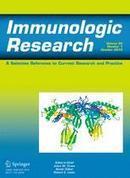

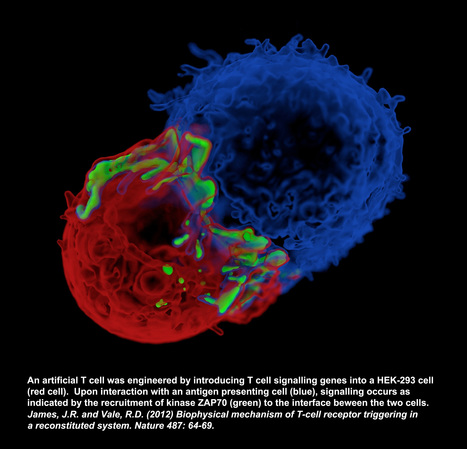
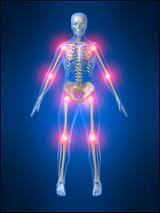

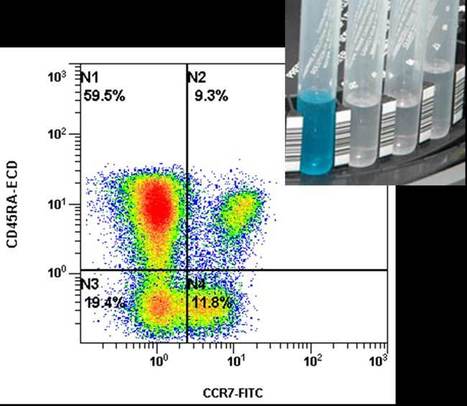

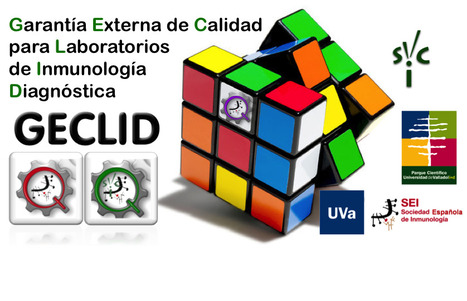
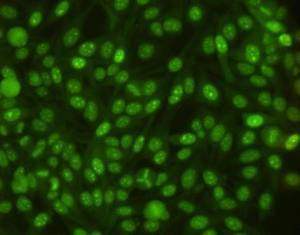
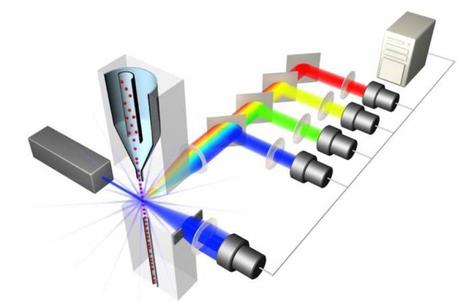
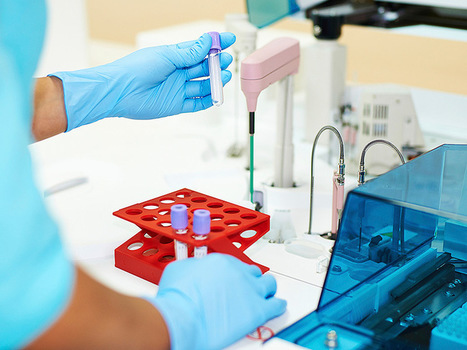
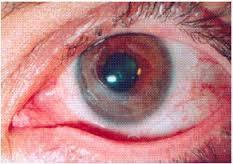
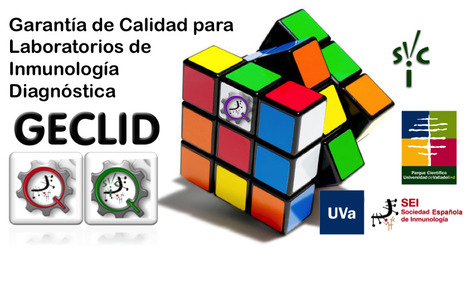
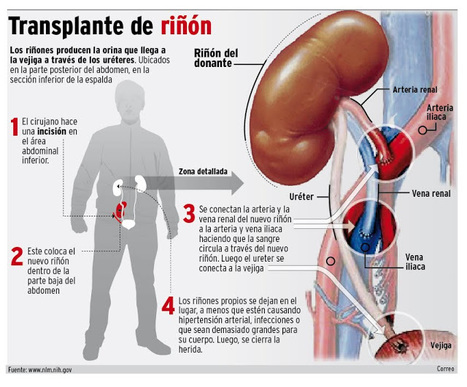
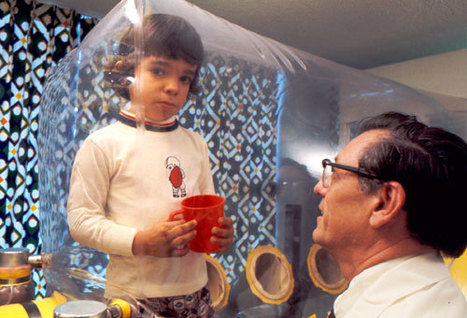
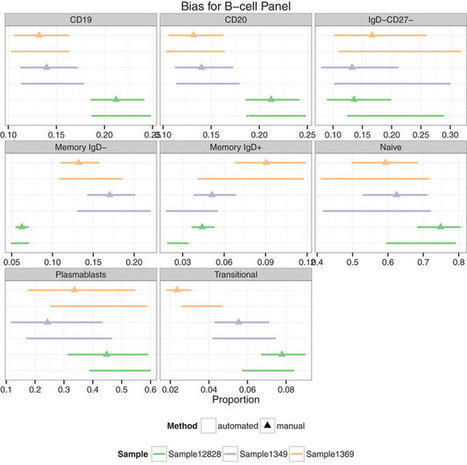
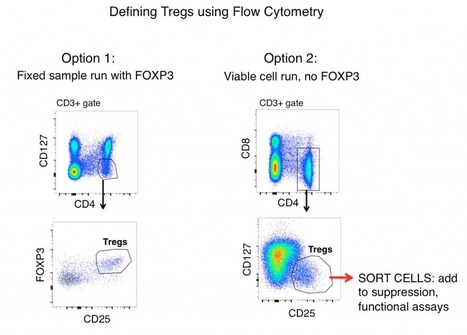
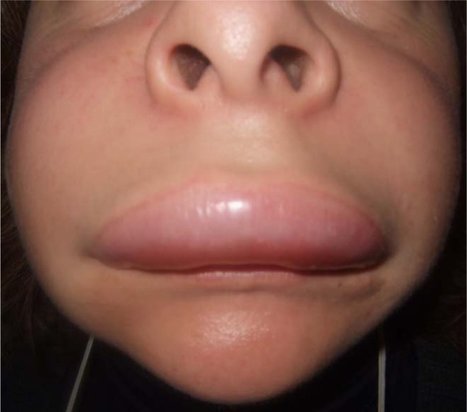
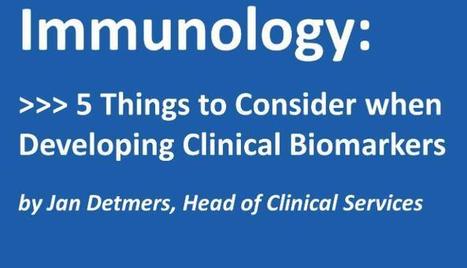

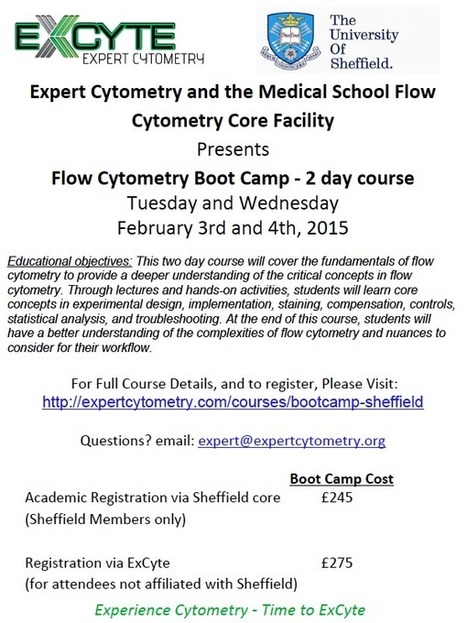

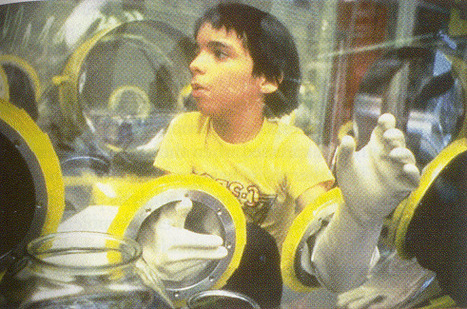
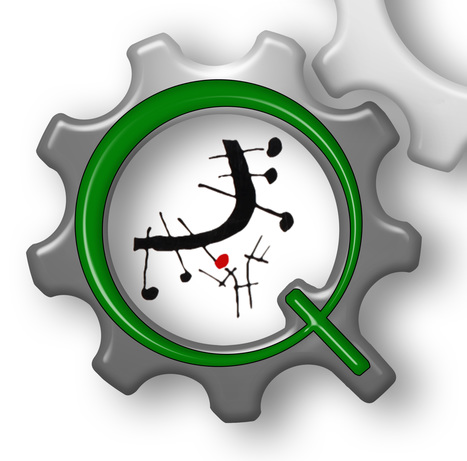





Rheumatoid Arthritis (RA) is an autoimmune destructive joint disease, characterized by the presence of rheumatoid factor and anti-citrullinated peptide antibodies. Anti-citrullinated peptide antibodies were recently defined as RA criterion with sensitivity and specificity of 50–80 and 75–95 %, respectively. However, in the general population, the predictive value of anti-citrullinated peptide antibodies is yet to be determined. Herein, we aim to determine the predictive value of anti-citrullinated peptide antibodies in real life as well as clinical and serological factors related to this value. Retrospective cross-sectional study of consecutive samples evaluated for anti-citrullinated peptide antibodies in a referral autoimmune laboratory. Demographic and clinical parameters at the time the sample was drawn were collected. During November 2011 through December 2013, a total of 215 anti-citrullinated peptide antibody tests were performed in our laboratory. Data were available for 140 samples of which only 28 samples were positive for anti-citrullinated peptide antibodies. Of the 140 patients tested, 18 were diagnosed with RA, of which 12 were positive and 6 were negative for anti-citrullinated peptide antibody test. Thus, in this cohort, anti-citrullinated peptide antibodies were positive in 20 % of samples with a positive predictive value (PPV) of 43 % and a negative predictive value of 95 %. In real life, only 20 % of anti-citrullinated peptide antibody tests referred to a tertiary center where found to be positive. The negative predictive value of this test is very high and may support the common use of anti-citrullinated peptide antibody test as an exclusion criterion in the process of evaluating a patient with rheumatic disease.
Download the pdf: http://link.springer.com/content/pdf/10.1007%2Fs12026-014-8566-4.pdf